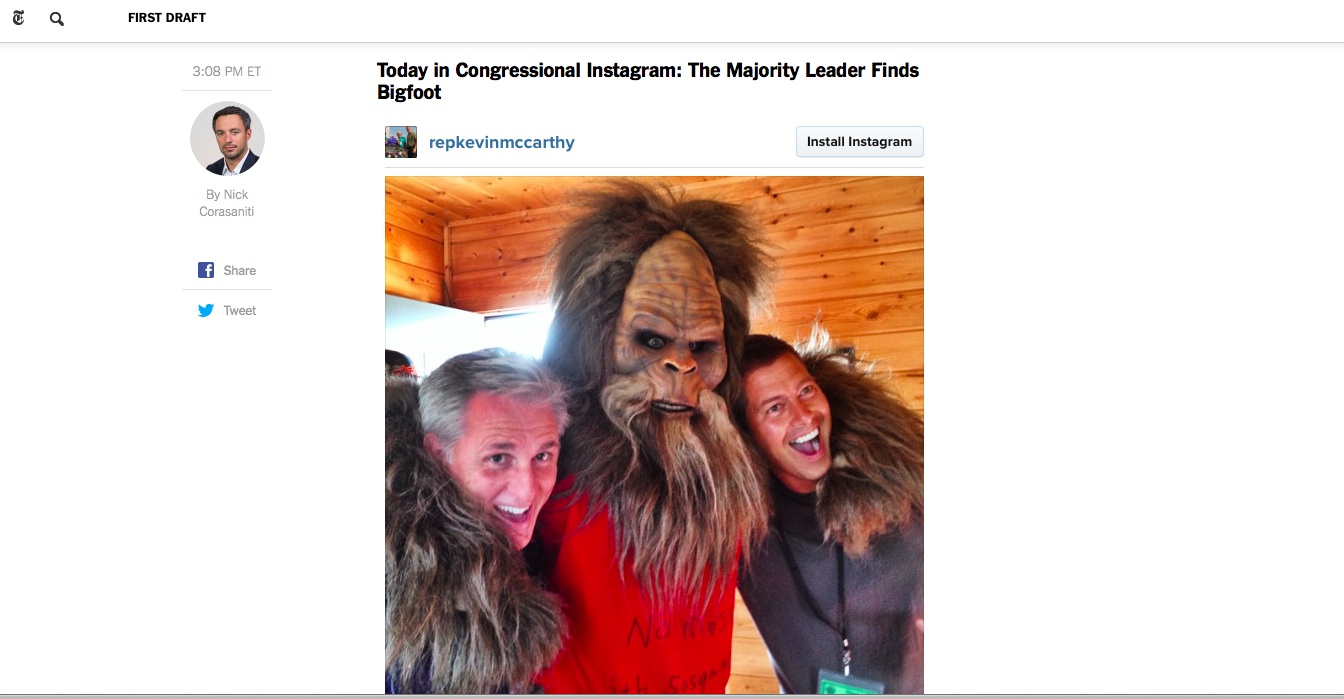This week the Times premiered two products that should become textbooks in any introductory journalism class. The two are FirstDraft , labeled as Political News, Now, and Watching , which according to a Times piece is a “ major new feature that will keep an eye on developing and breaking news from The Times and other sources 24 hours a day. It will appear on the home page and on the MOBILE WEBSITE. It will soon be built into Times apps.”
Both bring to the front new concepts of storytelling which we have emphasized repeatedly in our own projects. In the digital age, not every story needs to follow a traditional story structure: headline, summary, text. While such style is still quite useful for many type of stories, we are also aware that in the digital age, and with mobile platforms, readers come to stories knowing a lot about them: they want the latest that happened (it could be a couple of quotes, or a photo, or short take).
With these two products, the Times is showing us that even the most formal and robustly text driven newspaper in the land can embrace shorter, more inviting ways of telling its wonderful stories.
If I were teaching an introduction to journalism class, this would be a required daily part of the laboratory experience.
If I were an editor in a newsroom where the big elephant of legacy sits in the middle of the room, I would have everyone in my team take a look, analyze and then have a call to action.
It is also enjoyable, uplifting and fun reading, by the way.
The new approach to frequency
I am watching with interest, especially since the Times piece informs us that Watching will provide “early outlines of developing stories on NYTimes.com, and aggregate the most newsworthy and trusted reporting from around the web.”
Frequency, in the mind of most traditional newspaper editors, dictates a lot of what happens in the newsroom—and what readers get to see. A story is NOT a story until it is finished. We all aim for the cooked soup, ready to serve. In the era of smartphones and tablets —and soon watches—we let customers sample the soup while it’s still cooking.
I also like that Watching will feature “tweets from Times reporters and others, as well as photos and YouTube videos. Times editors — not algorithms — will make the choices.”
The Times’ editors have come up with a palette of storytelling elements such as : quotes, breaking news, the photo, the graphic, the numbers.
What perennial journalism student has not turned to The New York Times for inspiration? For the model of what good journalism is all about.
This is no exception: the Times is now showing us the way with digital storytelling.
The Times’ new palette of storytelling structures for the digital age
The quote
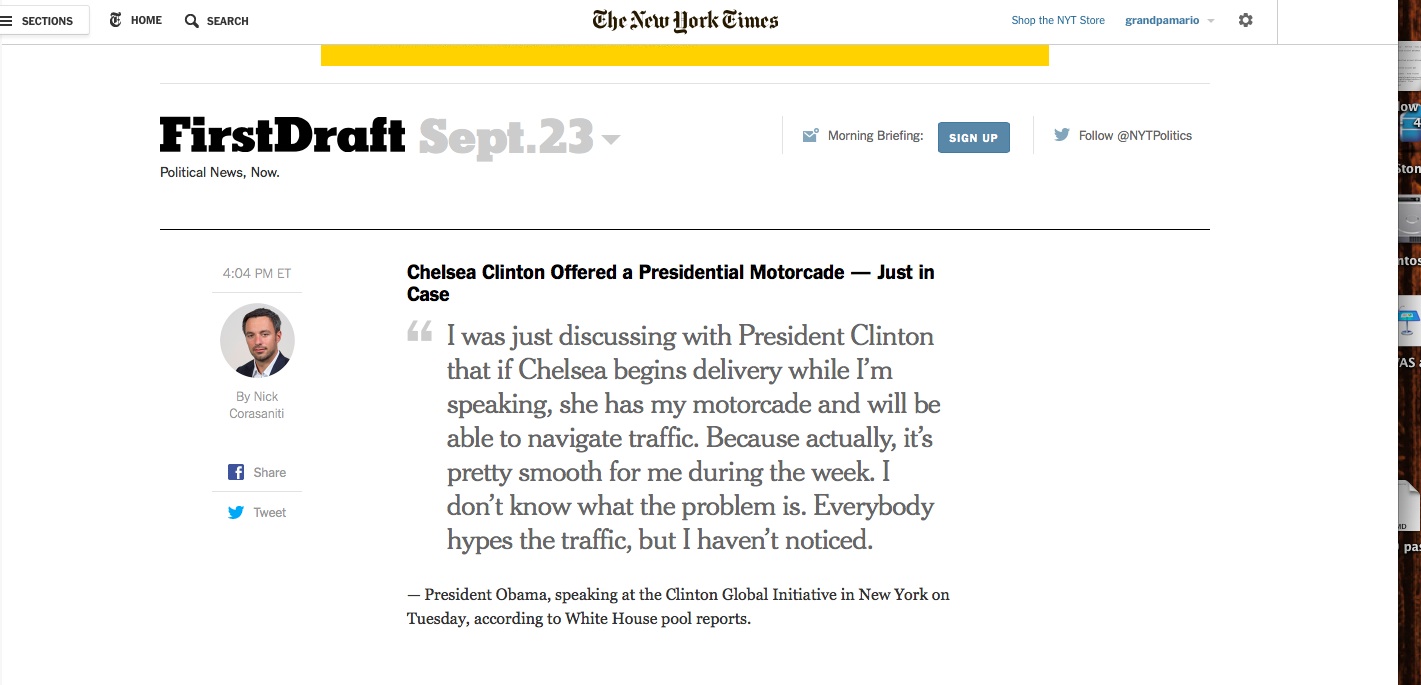
The tweet
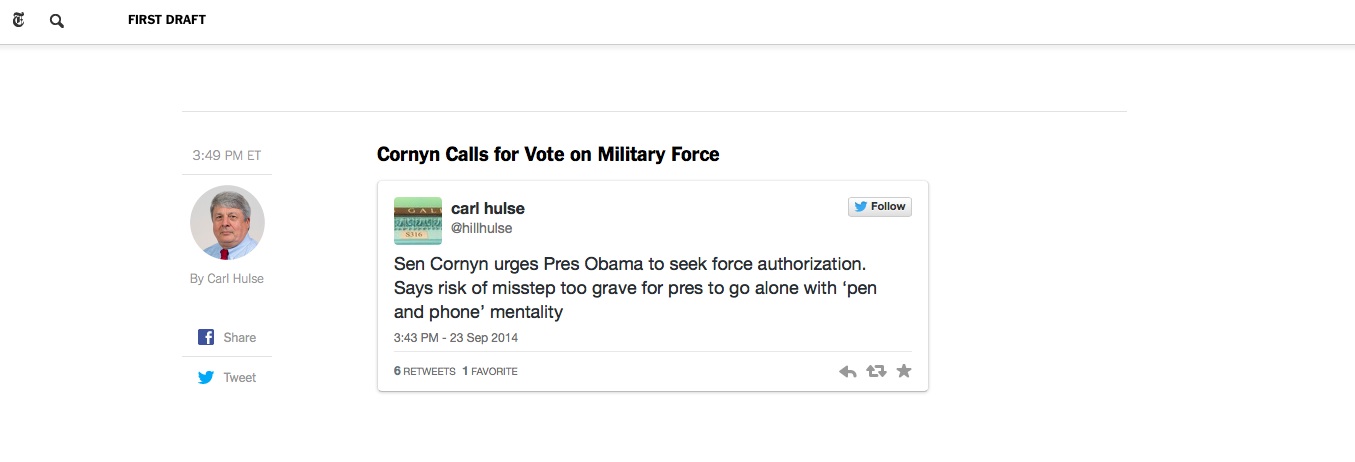
The graphic
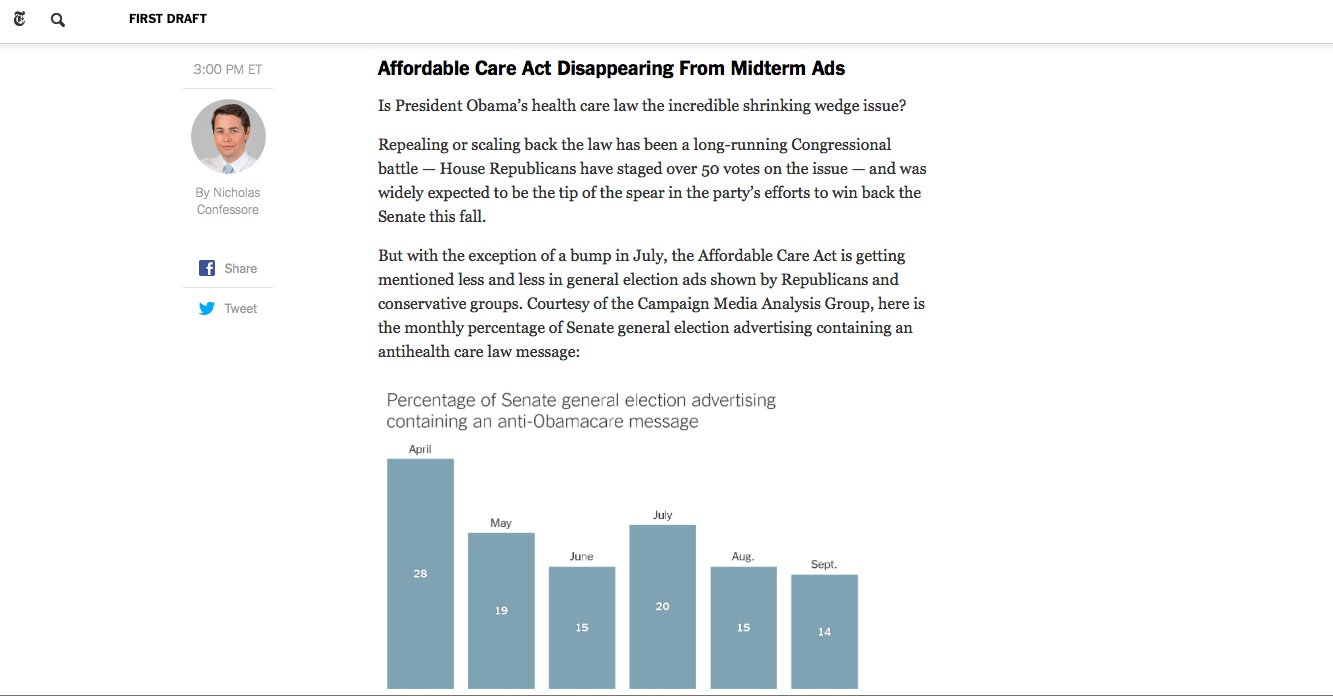
The Q&A
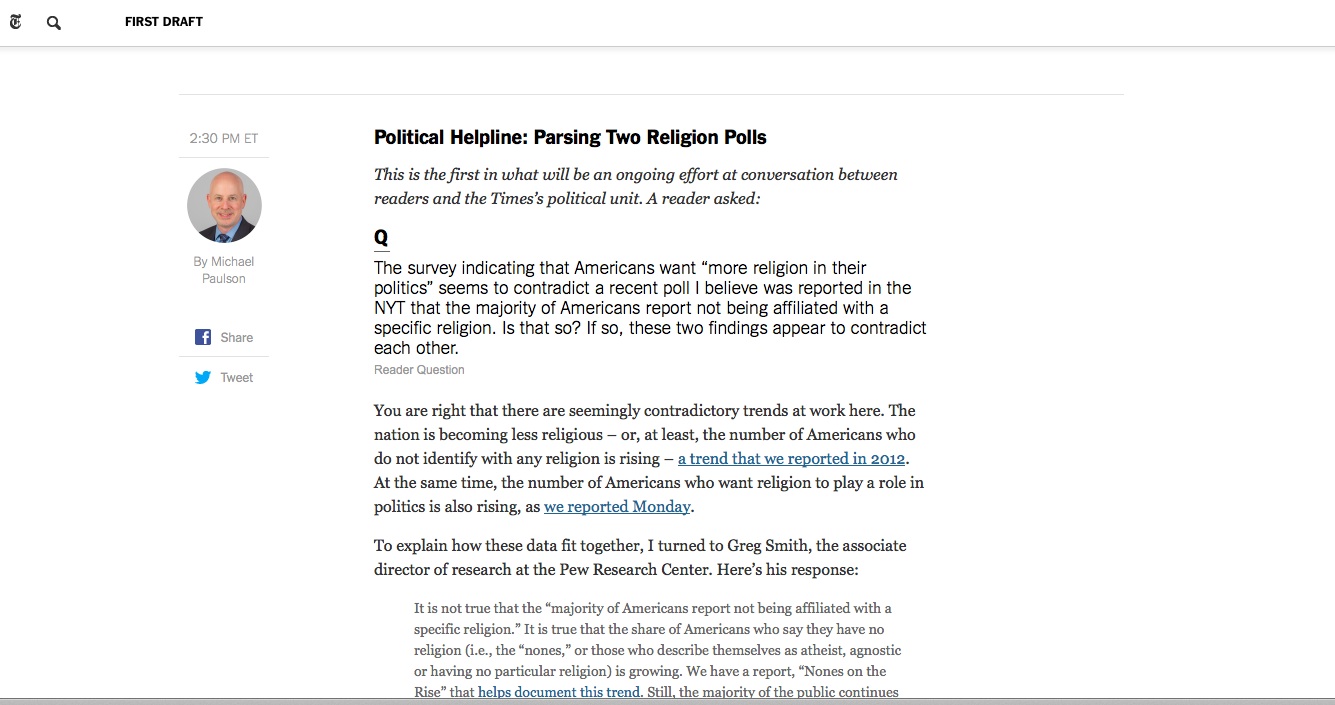
The video
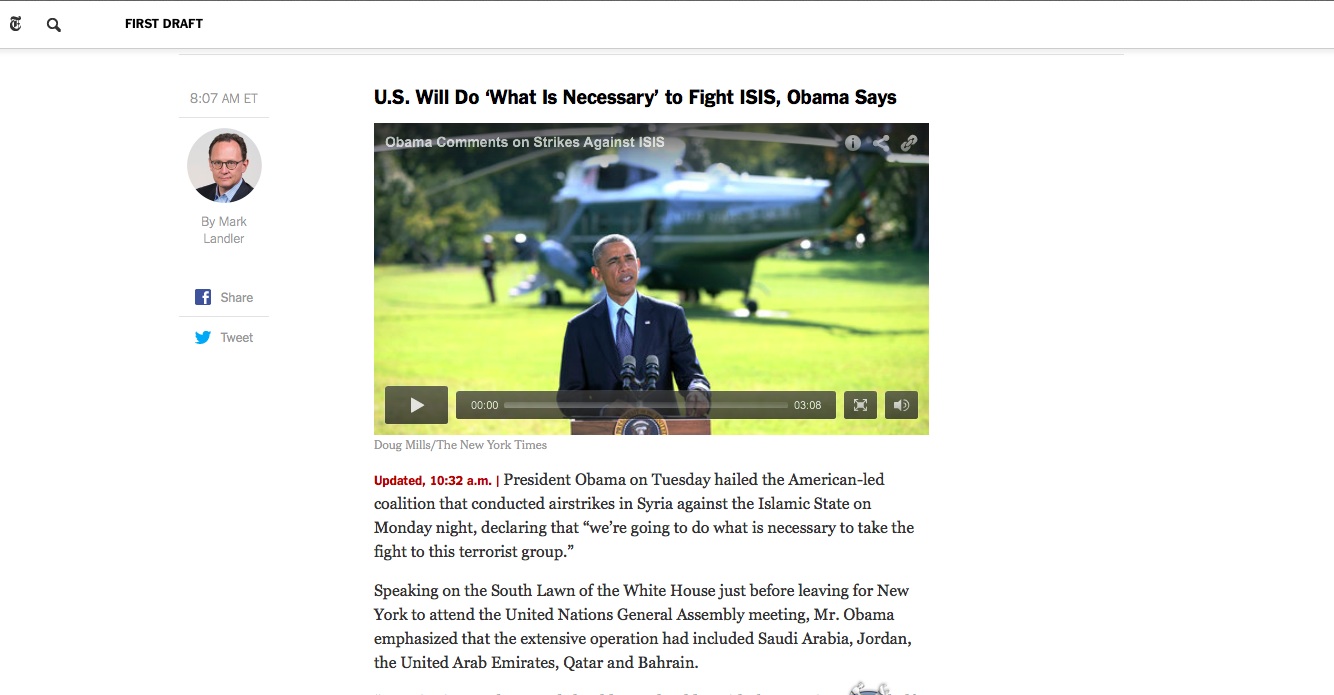
The photo
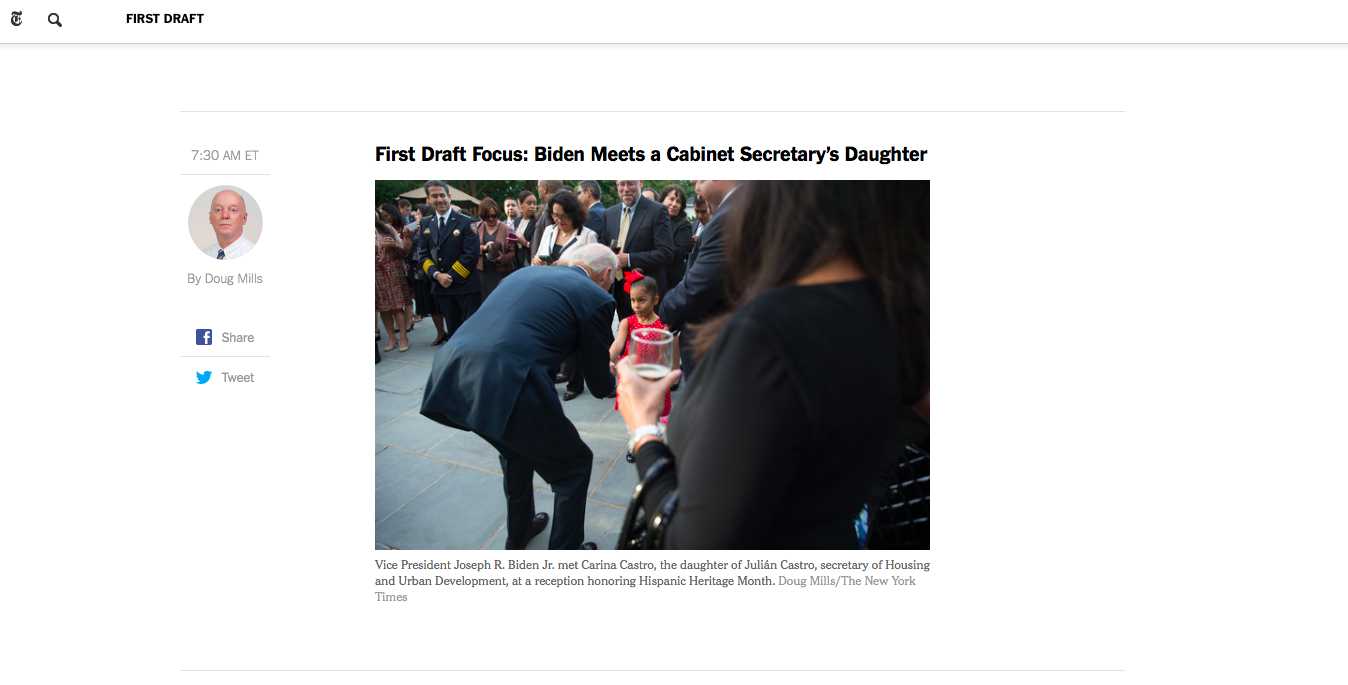
The photo composite
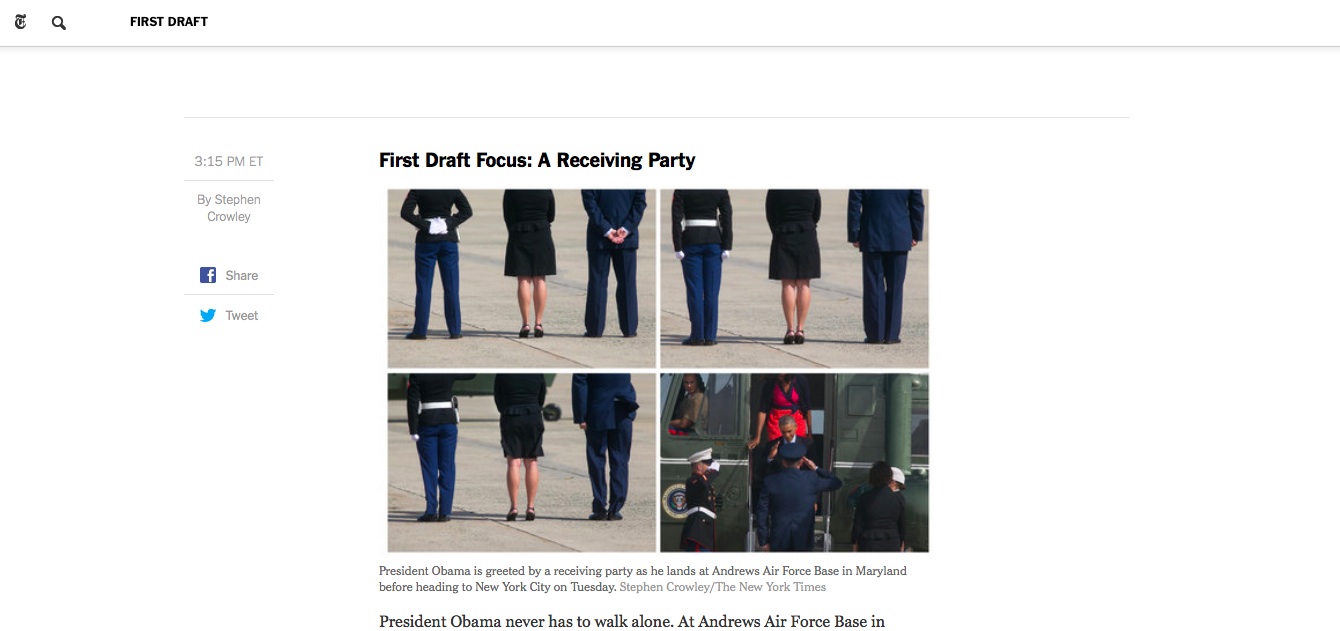
The NYT archival photo
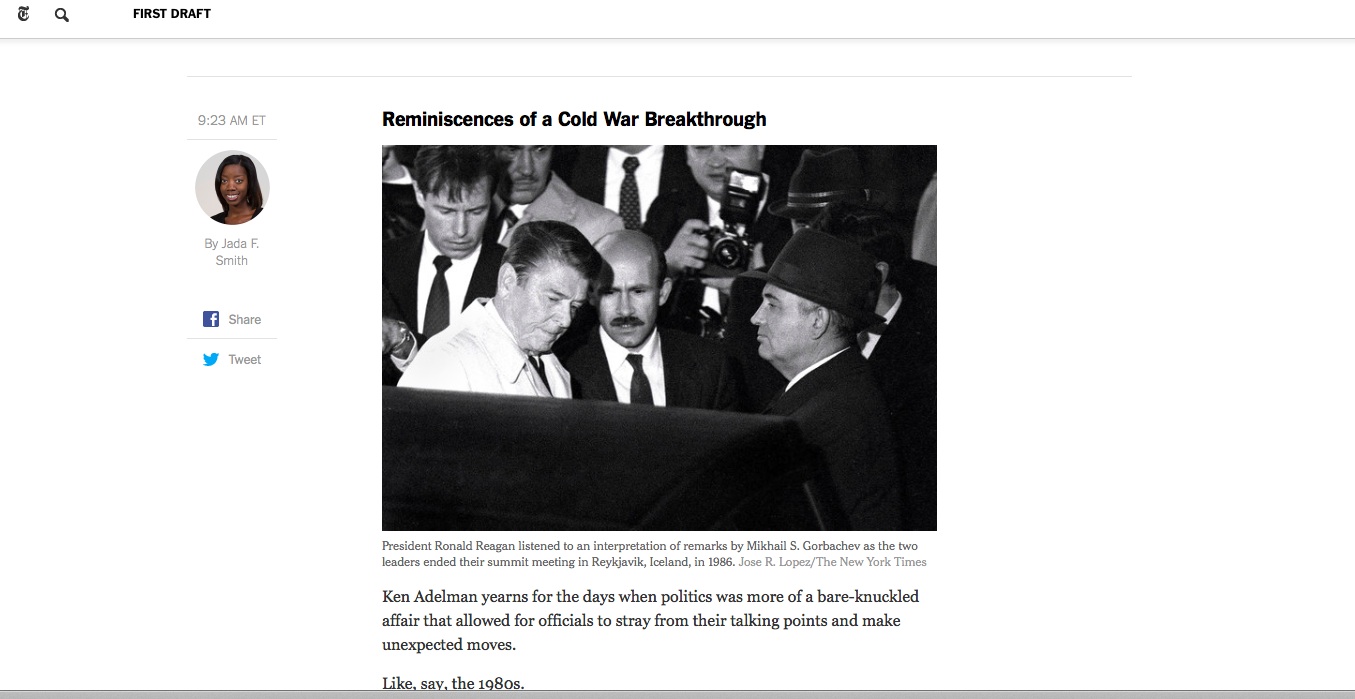
The Instagram Photo
